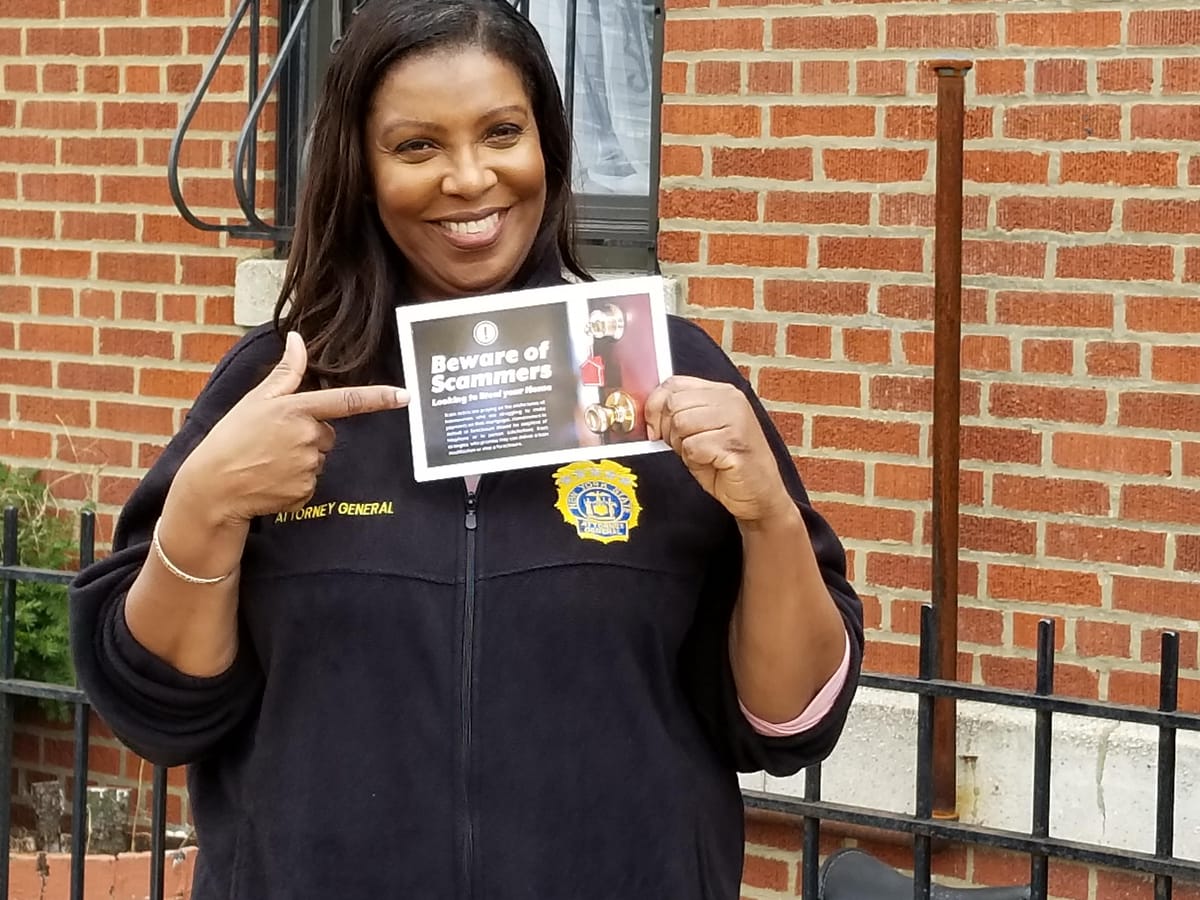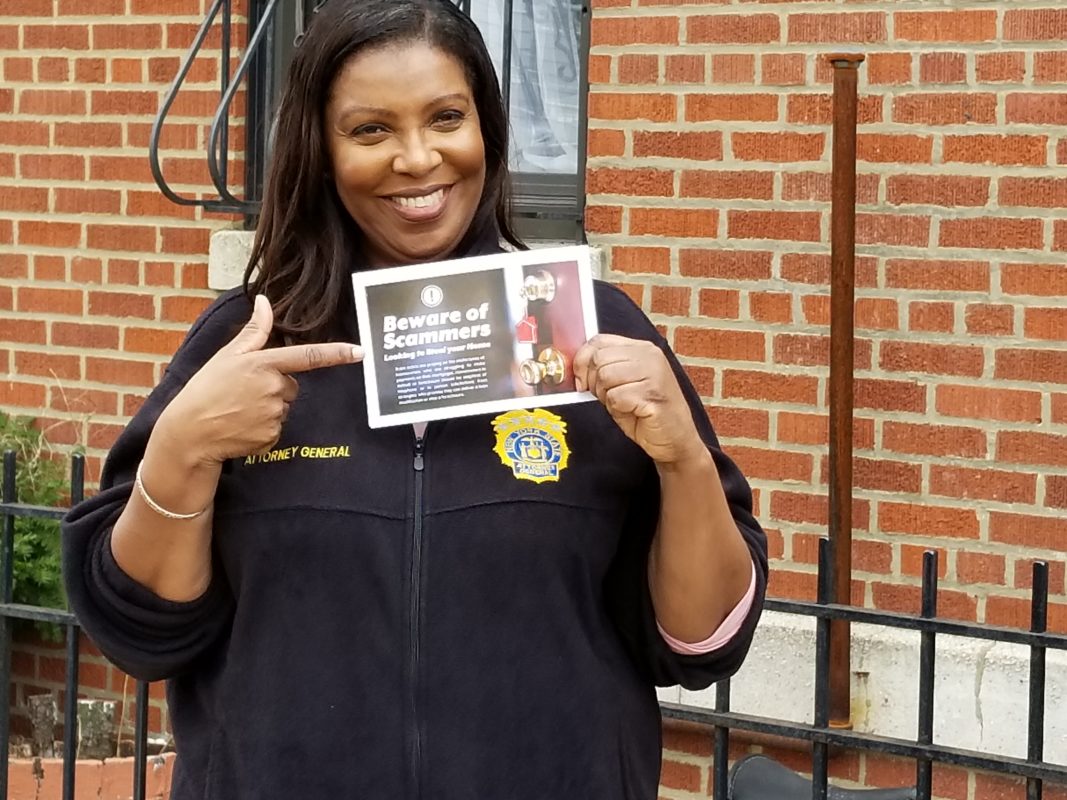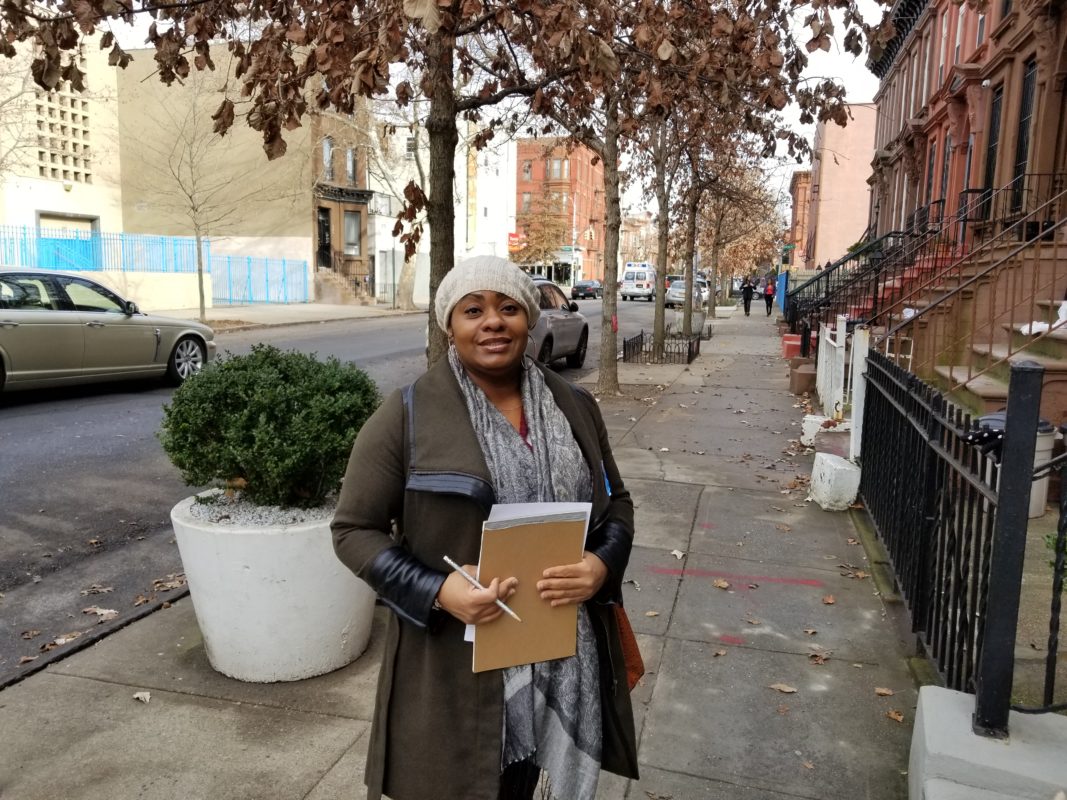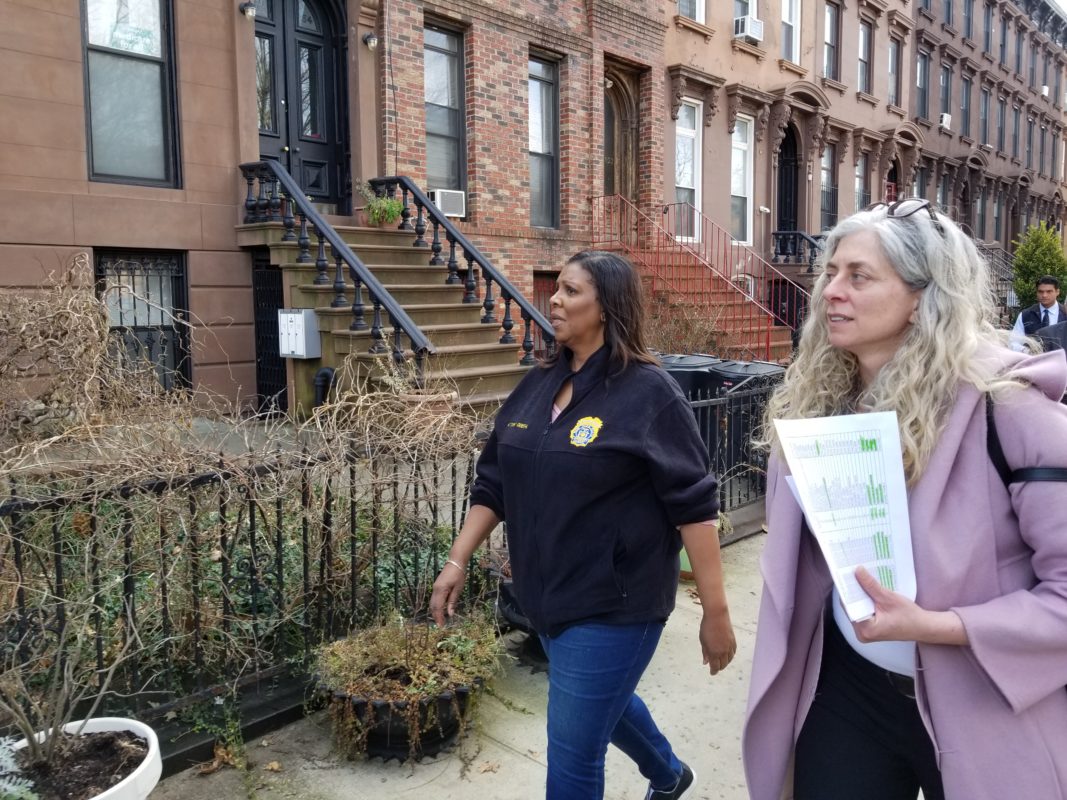‘This Is a Warning,’ Tish James Announces New Task Force Against Deed Theft


Attorney General Letitia James on Saturday led dozens of volunteers around Central Brooklyn to educate vulnerable homeowners, particularly Black homeowners in gentrifying neighborhoods like Bed-Stuy and Crown Heights, about the risks of “deed theft.”
Deed theft can take many forms, but often ends with a scammer surreptitiously and illegally acquiring the deed of a home and taking title to it without the owner’s consent. In other words — as James and other politicians noted at the rally — homes, and the wealth they bring to historically marginalized communities, are being stolen.
James was joined by various citywide and Brooklyn politicians, including Public Advocate Jumaane Williams, Comptroller Scott Stringer, U.S. Rep Yvette Clarke, and several councilmembers, state senators, and assemblymembers. Afterward, volunteers canvassed streets in Bed-Stuy, Crown Heights, Prospect Lefferts Gardens, Flatbush, and other neighborhoods with large populations of color informing homeowners of the dangers associated with deed theft.
She also announced her office will pursue more “coordinated” enforcement efforts against the practice with city, state, and federal officials, and will form an “interagency task force” with District Attorney’s and the city Sheriff.
About 3,000 complaints of deed theft have been lodged with the city in the past five years, according to the Attorney General’s office; nearly half of those complaints originated in Brooklyn. Gentrifying central Brooklyn neighborhoods, with ever-rising property values, have been hit particularly hard.
Scammers often target homeowners experiencing significant financial distress, such as tax liens or foreclosures. Some will approach homeowners at their home, offering assistance in their legal and financial matters, and will have them sign documents that clandestinely transfer the property deed to the scammer, who can then sell it at a huge profit.
Other times, fraudulent paperwork can be filed with the city transferring ownership of the deed. That occurrence has plagued the life of Shauna Paul for the past decade.
“My life hasn’t started in ten years,” Paul, who runs a nonprofit housing for the homeless and canvassed Bed-Stuy on Saturday, told Bklyner, saying that the deed
theft has consumed her life. Paul said that after she and her aunt were foreclosed upon, a man filed fake paperwork with the city claiming to have a second mortgage on the home, which was then resold twice.
“They just made up a fake mortgage, fake name, fake person, filed it with the Department of Taxation, and he became real,” Paul said. “No one can find him, no one knows who he is. And here’s the question. If we sold our home, there would be checks, there would be paperwork. There is nothing that shows that we sold our home at all. But the court still accepted the case, and they still refused in these people’s favor.”
Paul is currently undergoing bankruptcy proceedings. She said she has spent $145,000 in attorneys’ fees and is having trouble paying her other bills. She hopes that the canvass will make people understand the scope of the problem.
A bill sponsored by State Senator Velmanette Montgomery and Assemblymember Helene Weinstein to combat deed theft was signed by Governor Andrew Cuomo in August of 2019. The bill’s main aim is to allow for fraudulently transferred homes to be returned to their owners by courts and to mitigate the harms on deed theft victims. Nonetheless, officials said that more needs to be done, particularly in the realm of raising awareness of the issue.
“I hope that we can save the wealth in Central Brooklyn,” James told reporters. “I hope that we can save homes, so that individuals can pass on all the equity in their home to their family members.”
Those speaking at the rally connected the deed theft “scourge” with the historical theft of wealth from African Americans. Public Advocate Jumaane Williams noted that the same communities most subject to deed theft were the same ones that were most greatly impacted by the mortgage crisis, in addition to redlining, Jim Crow, and slavery before that.
“Where were they supposed to catch up,” Williams said. “That’s the question I always have, with the systemic and systematic ways that these communities have been pushed down. And we have to speak openly and honestly about that.”
In that vein, those present advocated tough treatment of scammers, including that they should be “locked up.”

“Some have been arrested and locked up,” James told Bklyner, “but this is a warning to all of them that there’s a new task force in town.”
James said that the approach, particularly the outreach effort, is not meant to be punitive.
“This is preventive action,” she said, “and so we look forward to working with homeowners to prevent them from being in court and from untangling the web of deception.”
Officials were also confident that the outreach efforts would have an impact, by making the issue more well known in the community.
“Half of this battle is the knowledge,” State Senator Zellnor Myrie told Bklyner.




